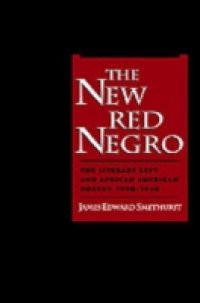The New Red Negro surveys African-American poetry from the onset of the Depression to the early days of the Cold War. It considers the relationship between the thematic and formal choices of African-American poets and organized ideology from the proletarian early 1930s to the neo-modernist late 1940s. This study examines poetry by writers across the spectrum: canonical, less well-known, and virtually unknown. The ideology of the Communist Left as particularly expressed through cultural institutions of the literary Left significantly influenced the shape of African-American poetry in the 1930s and 40s, as well as the content. One result of this engagement of African-American writers with the organized Left was a pronounced tendency to regard the re-created folk or street voice as the authentic voice--and subject--of African-American poetry. Furthermore, a masculinist rhetoric was crucial to the re-creation of this folk voice. This unstable yoking of cultural nationalism, integrationism, and internationalism within a construct of class struggle helped to shape a new relationship of African-American poetry to vernacular African-American culture. This relationship included the representation of African-American working class and rural folk life and its cultural products ostensibly from the mass perspective. It also included the dissemination of urban forms of African-American popular culture, often resulting in mixed media high- low hybrids.

